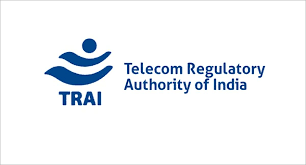
Telecom Regulatory Authority of India (TRAI) released Consultation Paper titled “Digital Inclusion in Emerging Technologies.” This paper aims to explore challenges and opportunities brought about by rapid advancements in emerging technologies. The primary focus is on ensuring inclusivity across society, with particular attention to Micro, Small, and Medium Enterprises (MSMEs).
In today’s interconnected world, online connectivity has become essential for daily activities like accessing information, receiving services, remote work, education, financial transactions, and staying connected with loved ones. TRAI recognizes that digital inclusion is crucial for empowering every citizen. Without it, there’s a risk of widening access gaps, leaving a significant portion of the population excluded from the benefits of digital services. TRAI emphasizes the need for a strong policy framework and collaboration among stakeholders to enable everyone to participate in digital economic activities.
India has made impressive progress in digital transformation, ranking as the world’s second-largest telecom market in terms of subscribers. The country has seen significant growth in mobile broadband subscriptions, internet usage, and reduced data costs. Government initiatives like Digital India, the National Digital Communications Policy 2018, National Broadband Mission 2019, BharatNet, Common Service Centres (CSCs), and the Universal Service Obligation Fund (USOF) have played crucial roles in expanding connectivity and promoting digital inclusion nationwide.
The success of Digital Public Infrastructure (DPI) in creating an inclusive financial society, with the Jan Dhan-Aadhaar-Mobile (JAM) trinity facilitating transparent direct benefit transfers, has gained global recognition. UPI has empowered users to transfer money conveniently in real-time. However, disparities in broadband internet penetration and its effective usage persist, especially among marginalized communities, women, girls, and micro-entrepreneurs in remote areas. These issues need prompt attention.
In the Consultation Paper, TRAI has analyzed various digital inclusion gaps in the country, such as mobile internet usage disparities, rural-urban internet access differences, and gender gaps. Prioritizing inclusion can create an ecosystem that benefits everyone and fosters a more equitable digital economy.
The rapid advancement of technologies like 5G and Artificial Intelligence/Machine Learning services, along with associated costs, may widen the digital divide further, especially for marginalized communities and underserved regions. Unequal access to infrastructure, limited digital literacy, and affordability issues could hinder the fair distribution and utilization of these technologies, exacerbating existing inclusion disparities. Addressing these gaps is crucial for comprehensive digital inclusion.
TRAI has also identified challenges faced by the MSME sector in adopting new digital technology solutions. Given the significant contribution of MSMEs to the nation’s economy, it is essential to empower them to contribute more to the digital economy, particularly micro-enterprises.
Stakeholders are invited to provide written comments on the consultation issues by October 16, 2023, and counter-comments by October 31, 2023. Comments and counter-comments can be sent electronically to advisorit[at]trai[dot]gov[dot]in, with a copy to Ja-cadiv[at]trai[dot]gov[dot]in. For further information, Shri Anand Kumar Singh, Advisor (CA&IT), can be contacted at Tel. No. +91-11-23210990.







Leave a Reply
You must be logged in to post a comment.